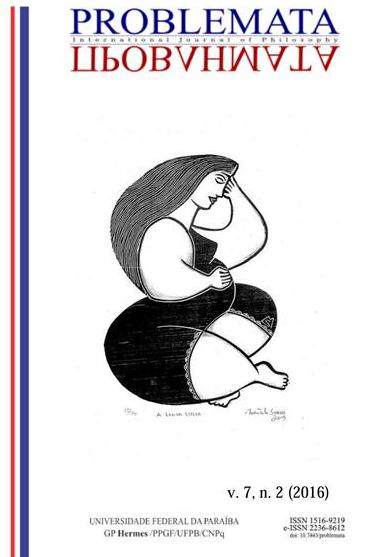The concept of religion in early modern philosophy – three examples: Machiavelli, Cardano and Bruno
DOI:
https://doi.org/10.7443/problemata.v5i1.20253Abstract
This paper discusses the significance and development of the concept of religion in theoretical and historical backdrop in beginning of modern philosophy. Considering especially the contributions of the most important philosophers of the Renaissance, including Nicholas of Cusa, Marsilio Ficino, Machiavelli, Cardano and Bruno, it discusses the metaphysical and anthropological foundations of religion, as well as its political role at the dawn of modern philosophical thought.
[doi:http://dx.doi.org/10.7443/problemata.v5i1.20253]
Downloads
Download data is not yet available.
Downloads
Published
2014-08-22
Issue
Section
Papers
License
Authors who publish with this journal agree to the following terms:
- Authors retain copyright and grant the journal right of first publication with the work simultaneously licensed under a Creative Commons Attribution License that allows others to share the work with an acknowledgement of the work's authorship and initial publication in this journal.
- Authors are able to enter into separate, additional contractual arrangements for the non-exclusive distribution of the journal's published version of the work (e.g., post it to an institutional repository or publish it in a book), with an acknowledgement of its initial publication in this journal.
-
- Authors are permitted and encouraged to post their work online (e.g., in institutional repositories or on their website) prior to and during the submission process, as it can lead to productive exchanges, as well as earlier and greater citation of published work (See The Effect of Open Access).





